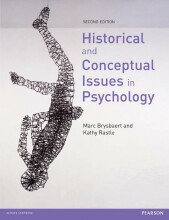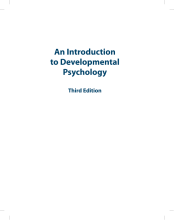Future of psychology
26 important questions on Future of psychology
Where does psychology lie as a science compared to natural sciences?
- Psychology actually lies in the middle of the continuum between humanities and natural sciences.
- we use a lot of methods used in natural sciences, but the object we study belongs more to the humanities; study aspects of human society and culture.
Psychology works in a quantitative paradigm right now, what does this mean?
Describe what mainstream quantitative psychology looks like.
- Controlled experiments
- Measurement procedures and measurement models
- The use of statistics to analyze data
- Tendency of objectifying; standardize things and avoiding subjectivity of experiences of subjects
- “ The quantitative approach”; measure everything
- Quantitative imperative: the conviction that you cannot know what you cannot measure
- Measurement is a loaded term; is psychological measurements measureing?
- Higher grades + faster learning
- Never study anything twice
- 100% sure, 100% understanding
What is the world view that goes along with a quantitative research paradigm
- Quantitative research goes along with a positivistic world view
- we think qualitative research is the way to ‘discovering’ reality and focus on revealing causal relationships.
- we do this mostly through Experimental and correlational research with big N, small t (time) so no longitudinal studies
- research is often driven as much by what we can as by what we want. Instead of thinking this is what i want to know, we think we have this methodology what can we discover using this.
Quantitative research is designed nomothetically, what does this mean?
- nomothetically means looking for general laws. Contrasting ideographic research where you follow one individual thing over time.
- Most statistic approaches have the explicit assumption that people are considered more or less interchangeable
- with ideographic research you're interested in the differences between people.
Qualitative research is an alternative paradigm to quantitative research, what does qualitative research look like?
- Qualitative research is interested in specific individuals or groups of individuals and the differences between them
- this methodology consists of (Participant) observation, semi- structured interviews.
- the experiences of the subjects is the object of study.
- the researcher and his observations and experiences is the measurement tool. Your data are your notes for example
One qualitative method is grounded theory, describe this method.
- It is the systematic analysis of a problem. Through observations it tries to make a theory about the problem.
- Based on structured and semi-structured interviews, the researcher writes a problem analysis:
- What is going on?
- With what kind of problems are my participants dealing?
- How do they try to solve these problems?
- Strongly inductive
- this method still focuses on what the problems are and not necessarily how they are experienced
Another qualitative method is interpretative phenomenological analysis (ipa), describe this method
- This method focuses more on the experiences of a subject.
- Based on structured and semi-structured interviews, the researcher tries to find out what is it like for them to be in a certain position?
- The interpretive ability of the researcher then acts as a "measuring instrument".
- question is; do we really have access to the experiences of others if we have never been in this position?
Qualitative research can be seen as complementary to quantitative research, what weaknesses of quantitative research does qualitative research solve?
- Qualitative research can help generate theories which can be tested by quantitative research
- qualitative research can help modify general laws generated by quantitative research to fit specific cases
- qualitative research is well suited for quickly mapping out complex situations
What is a feature of qualitative research that allows to verify the quality of the data?
- participants find the data recognizable
- As a result, the participants have a real say in the processing of the data
- If they don't recognize themselves in the data, something's wrong
- This does not apply to the interpretation of the data
What are the strength and weaknesses of qualitative research?
- direct involvement with situation; solve problems
- generates theories, exploration
- responsive to the needs of participants
- Less suitable for demonstrating general laws
- little room for precise predictions/falsification
- less suitable for deciding between theories
- largely based on introspection/subjective evaluation
Why is the critique on the subjectivity of qualitative research from a positivistic viewpoint?
- From the point of view of the criteria we use to evaluate quantitative research (reliability, replicability etc.), it is a weakness that the researcher himself contributes so much to the interpretation.
- But you can also look at it in a completely different way, for example, by letting go of the pursuit of objectivity...
- If i'm studying problems of a subject, why would i expect them to replicate in a later point of time?
Qualitative research brings science back to relativism, what does this mean?
we have different goals in what we want to discover about reality
Why are people arguing that we shouldn't look at qualitative research as an alternative method?
- Rather than viewing qualitative research as a different method you can also view it as a different paradigm.
- If you see it as a different method, the weaknesses you see in the method are weaknesses from a quantitative paradigm.
- if you look at the method in a qualitative paradigm the weaknesses are the strengths of the method.
What are some misconceptions about qualitative research that propositions of seeing qualitative research as a paradigm try to fight?
- Qualitative and quantitative provide the same kind of understanding
- Qualitative research is a first exploration; this is when you see them as methodology instead of a different world view
- Qualitative research is purely inductive; you already have theory when you start observing
- Qualitative research as a paradigm same as quantitative psychology but without numbers
What are the characteristics of qualitative research as a paradigm?
- The researcher’s contribution to interpreting the data is its strength
- The research does not need to be replicable
- Objectivity is not the goal, there is not ‘truth’, reality is a construction. Truth is what we built as a conception of reality, it is not something fixed to discover but something we create
- So, methodological criteria that are based on the idea of an underlying existing truth, miss the point!
What is the phenomenological perspective?
- an extension of the qualitative approach that is focused around understanding the motives and experiences and intentions for behavior rather than explaining the behavior
- Focus on intentionality, consciousness and qualia instead of behavior
- this focus is called interpretive methodology
- The fundamental task of psychology is not to explain human behavior
- It is to understand people’s actions and their motives
- Not the behavior itself, but its meaning, should be at the center of the research
Describe the theory of alfred schultz about understanding behavior
- We make an action plan in our head for behavior and play it in our head but without actually performing the behavior
- by studying the person you can at some point interpret their motives for behavior so that you can understand what it is like to perform this behavior and why you would do it.
What is the view of social constructivism?
- Knowledge is not something that is true but something that is socially constructed.
- The results of psychological research constructs a new reality Science transform reality
How is the bystander effect an example of psychology transforming reality instead of passively describing it, and what are the consequences of that?
- The bystander effect is now a real famous and well known concept
- due to people being aware of this it happens much less
- so the knowledge about this concept actually changes the concept.
- the question is now do we get closer to truth with more research or do we construct it by doing research
- if this is the case, theories should not be judged on truth but on the ability to generate new openings for action
- you would want to transform social life in such a way that the consequences are desirable
Why does social constructivism come with responsibility?
- Constructivism comes with a responsibility; We can't hide behind “revealing the truth”; as researcher you contribute to what is true
- What questions you are asking, and which categories do you consider relevant already influences the way things are looked upon. Being researched influences society
Describe the views of modernism vs postmodernism
- Rules and methods vs no privileged methods
- External reality vs socially constructed reality
- Moving towards truth vs different possible stories to tell
- Positivism vs relativism
The relativistic view of hermeneutics created a lot of friction with the positivistic view of the natural sciences, this resulted in the science wars. How did alan sokal contributed to this war?
- Sokal writes in an article that physics itself shows that there is no objective reality
- Writes about quantum mechanics, theory of relativity and quantum gravity
- Uses quantum gravity to show that everything is relative and context dependent
- “[Q]uantum gravity informs us that space and time themselves are contextual, their meaning defined only relative to the mode of observation”
- his political point was; We must have a liberating postmodern science, independent of objective truth What used to be only the domain of humanities now crosses the border and enters the natural sciences
Describe the hoax of Helen Pluckrose, James Lindsay, and Peter Boghossian.
In 2017-2018, Helen Pluckrose, James Lindsay, and Peter Boghossian write 20 fake articles
• They send these articles to journals in the field of gender studies, queer studies and critical race studies
• 7 articles are accepted for publication
• Example: "Human reactions to rape culture and queer performativity at urban dog parks in Portland, Oregon"
als a shot a postmodernism to show that you can publish anything as long as it is in line with the views of the journal while science should be objective
What were the criticisms about this hoax?
- There is a thin linebetween hoax an fraud
- This probably could have
- happened in other disciplines as well giving similar results.. (at least that is not tested)
- Naïve about how the academic system works: peer review is not to expose fraud or fabrications
Summarize the position of psychology on the quantitative/qualitative side over the years
- Psychology of course started of as a part of philosophy.
- From the first moment psychology became a scientific discipline of its own, there has been the feeling that the scientific method does not provide all the information psychologists are looking fo
- Currently, in psychology, positivism and the quantitative method are dominant
The question on the page originate from the summary of the following study material:
- A unique study and practice tool
- Never study anything twice again
- Get the grades you hope for
- 100% sure, 100% understanding
































